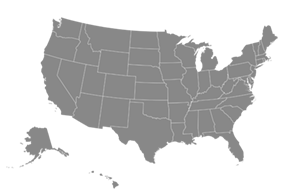


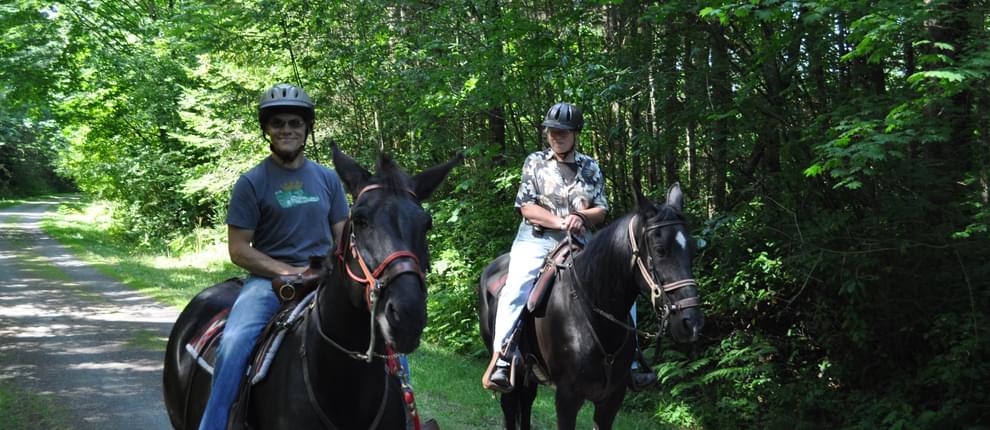

Subscribe to our mailing list for notifications on our latest trainings.
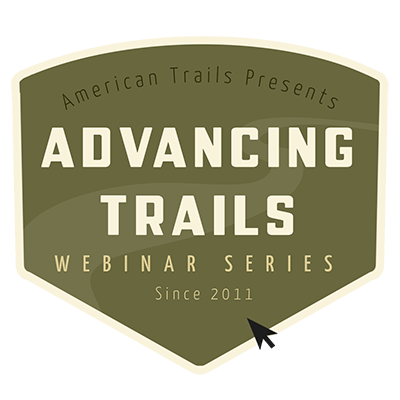
In partnership with the Equine Land Conservation Resource, this webinar will explain how joining or creating an organization will help in addressing issues such as poor trail design, lack of maintenance, and general misunderstanding of horses that can result in loss of trail access. Please note: This webinar can apply to all trail activities, but examples in this webinar reference equestrian trails.
Presented by:
** This event has passed **
August 23, 2018
10:00 AM to 11:30 AM (Pacific Time) {more time zones}
Cost (RECORDING):
FREE for membersNote:
Closed Captioning is available for this webinar.
Learning Credits are available for this webinar.
This webinar is free. Would you consider a donation to support this webinar?
This webinar can apply to all trail activities, but examples in this webinar reference equestrian trails.
Even in recognized ‘horse’ communities, issues can easily arise that affect access to equine land, facilities and trails. Joining or creating an organization will help in addressing issues such as poor trail design, lack of maintenance and general misunderstanding of horses that can result in loss of trail access. Equine and other community organizations and coalitions can accomplish more – educating the community and decision makers about the impacts and benefits of horses, participating in planning, zoning and sustainable design, and ensuring that equestrian trails are part of the recreational infrastructure.
Denise O’Meara, Director of Education, Equine Land Conservation Resource

Denise O’Meara is a professional landscape architect (PLA) and director of education for Equine Land Conservation Resource, a national non-profit organization dedicated to the protection of and advocacy for the equine land, facilities and trails that are needed for all horse activities. Denise’s education and experience include two areas that mesh well. An equine and farm management degree lead to an earlier career in thoroughbred training, breeding and farm management. Her later degree and profession in landscape architecture include project work in community planning, master planning, sustainable and low-impact design and construction of municipal and state parks, school and university campuses, and recreational, greenway, trail, stormwater and transportation infrastructure. These two fields merge in her work assisting local organizations and communities to advocate and act for equine access.
Mary Farr, Back Country Horsemen First Coast
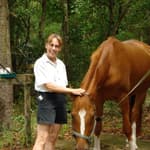
Mary Farr is a lifelong amateur horsewoman. According to her family lore “my first independent ride was at 18 months, my 4-year-old birthday gift was a Shetland pony, my first major purchase after graduation from the University of Kentucky was a young horse.” Mary’s degree is in Urban Planning & Economics. She worked briefly in Economic Development then Marketing Research in the agriculture sector. Mary has lived in three of the fastest growing counties in the United States: Jefferson Parish (county), LA; Wake/Chatham County, NC and St Johns County, FL, and has “seen growth done poorly and done well."
Lyndall Erb, President, Bay Area Barns and Trails
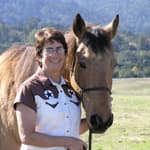
Lyndall Erb is the San Mateo County director and president of Bay Area Barns and Trails. BABT assists landowners and land managers with preservation and maintenance of publicly accessible barns, stables, pastures, staging areas, horse camps, and trails throughout Alameda, Contra Costa, Marin, Napa, San Mateo, San Francisco, Santa Clara, Solano, and Sonoma Counties. BABT administers a grant program to assist local organizations with projects and activities that will help to protect equestrian activities, facilities and land.
A lifelong equestrian, Lyndall has served on the Board of several clubs and committees including Los Viajeros Riding Club; Equestrian Trail Riders Action Committee (ETRAC); and Coastside Horse Council. She served as Volunteer Coordinator for the Woodside-area Horse Owners Association (WHOA) and on the San Mateo County Confined Animal Technical Advisory Committee. She has been actively involved in trail projects for many years before joining the Board of BABT. In addition, Lyndall has been docent and volunteer trail patrol for Mid-Peninsula Regional Open Space District, member and organizer for the San Mateo County Volunteer Horse Patrol, volunteer for the Bay Area Ridge Trail.
Mark Flint, Southwest Trail Solutions
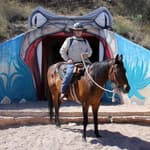
Mark Flint is a professional trail designer from Tucson Arizona, where he works as a part-time trails program coordinator for Pima County and has his own trail design business, Southwest Trail Solutions, which has designed trails in Vermont and Nevada as well as in many parts of Arizona.
Mark was heavily involved in the design and construction of the Arizona National Scenic Trail in Southern Arizona, and also did design and construction project management on segments in Central Arizona.
Growing up on cattle ranches, Mark was riding horses from the time he could walk, and worked as a cowboy before opting for a more secure career choice. He was an avid mountain biker, hiker and backpacker over the past 30 years, but over the past 10 years has returned to his first transportation of choice, horses.
We are offering closed captioning for our webinars, thanks to a partnership with VZP Digital. If you are in need of this service, please email us prior to the webinar. An unedited transcript will be sent to all attendees following the webinar.
American Trails is proud to be a certified provider of the following learning credits and continuing education opportunities:
Learning credits are free for attendees for American Trails webinars and the International Trails Symposium, as well as for other conferences, webinars, and workshops we offer credits for. Learn more here.
While we may individually agree (or disagree) in whole or in part with any or all of the participants, the views expressed in these webinars are not necessarily representative of the views of American Trails as an organization or its board and staff. Unless specific situations are noted by presenters, nothing in American Trails webinars should be considered to be interpreted as a standard.
By registering for our webinars, you submit your information to the webinar organizer and associated presenters and sponsors, who may use it to communicate with you regarding this event and their other services. Your organization may also be added to the American Trails Business Directory. You can easily cancel your registration at any time.
2,185 views • posted 07/12/2018
